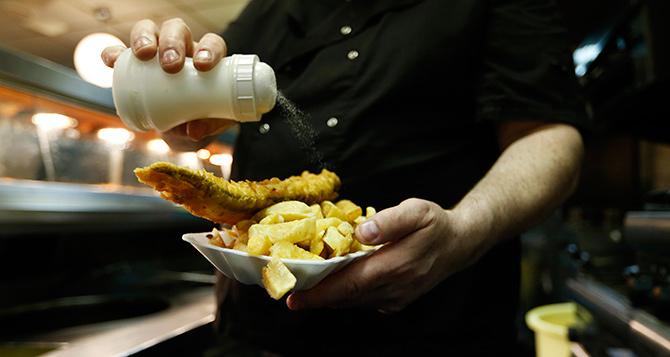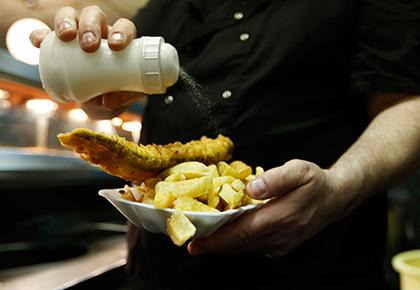 | « Back to article | Print this article |
The right amount of sodium intake, medication and water consumption can help manage your kidneys, says Dr Manoj Arora.

Photograph: Eddie Keogh/Reuters
Over 850 million people worldwide suffer from kidney diseases that are chronic in nature (2.4 million deaths per year; 6th fastest growing cause of death) and acute (1.7 million deaths per year).
In India, the incidence rate of end-stage renal disease is estimated to be 229 per million population and more than 1,00,000 new patients enter renal replacement therapy annually.
The rising incidence of chronic kidney disease is expected to pose major problems for healthcare providers and the Indian economy in future years.
The Indian Council of Medical Research (ICMR) study ranked chronic kidney disease in 2016 as the 16th leading cause of ailment in the country and added that by 2040, renal failure could well be among top five ailments.
Dr Manoj Arora, senior consultant, department of nephrology, Fortis Hospital, Shalimar Bagh shares a few insights on how to take care of your kidneys better:
Common habits which may damage your kidney:
How smoking affects your kidneys
Smoking can lead to worsening your kidney damage in multiple ways.
Here's a list of what it does to your body:
How junk food affects your kidneys
Processed and junk food cause glucose to accumulate in your blood.
When the blood is unable to produce enough insulin to neutralise the same, it can lead to obesity and Type 2 diabetes which may damage your kidneys.
How alcohol affects your kidneys
Alcohol has multiple effects on the kidney.
It dehydrates the organ making it difficult for the kidney to remove waste from the blood
Alcohol also leads to high blood pressure and liver disease causing the kidneys to malfunction.
How to be 'water wise'
You must try and consume at least eight glasses of water in a day.
The objective is to ensure that adequate amount of water consumption takes place, leaving the body with enough water intake to survive and thrive.
In cases of kidney failure, restriction of water is required if there is a fluid overload.
In some cases, too much water leads to a condition called hyponatremia -- wherein the sodium levels in the blood is diluted, causing the person to feel weak and dizzy.
Remember your body needs to produce 1.5 litres of urine every day.
The colour of urine can indicate a lot about your overall health. For example, dark yellow urine suggests dehydration, jaundice; light yellow or colourless indicate that the body is functioning properly
Drinking enough water also helps produce more urine, which helps to flush out infection-causing bacteria. '
Sufficient intake of water helps prevent kidney stones.
Beware of pills and procedures that are not medically proven or tested.
Drinking extra water with certain medications or before and after procedures with contrast dye may help prevent kidney damage.
Besides drinking adequate amount of water, it is important to maintain your sodium intake, balance vitamin D and lead an active lifestyle.
 Lead image published for representational purposes only.
Lead image published for representational purposes only.